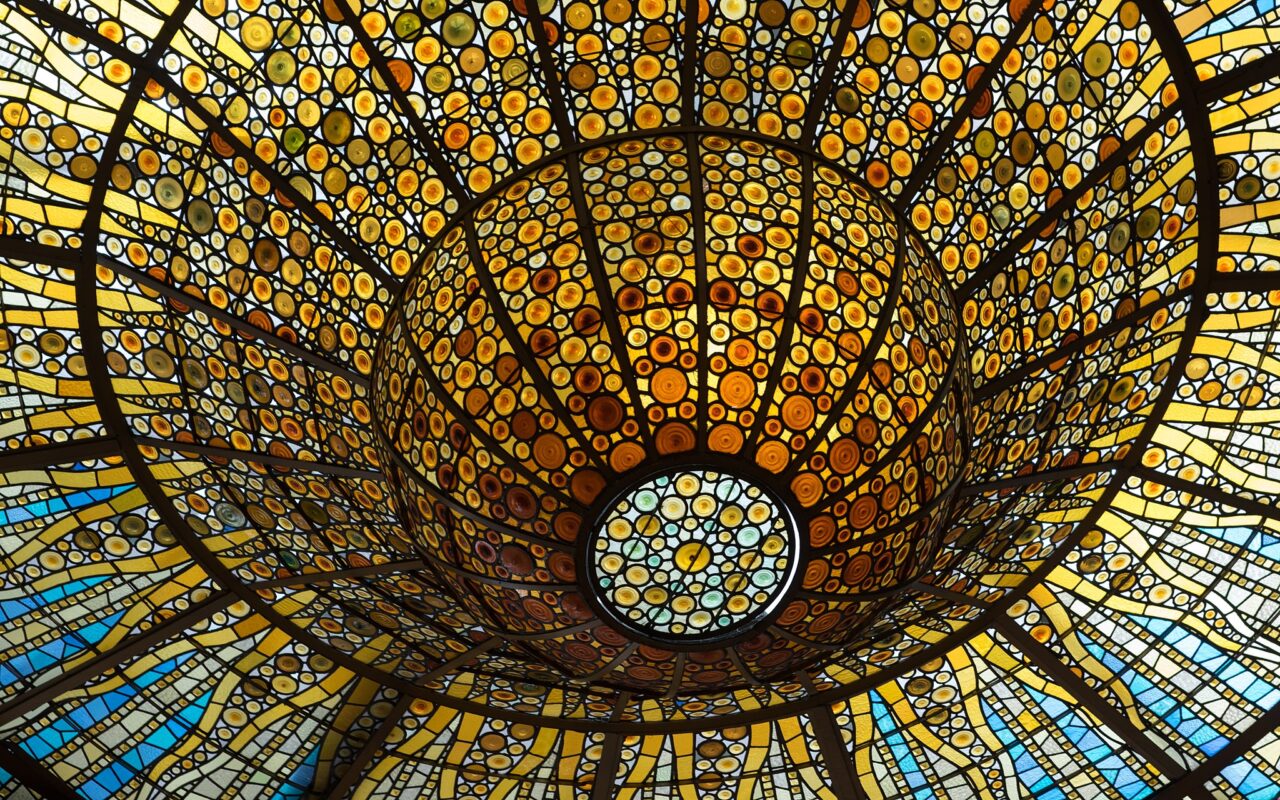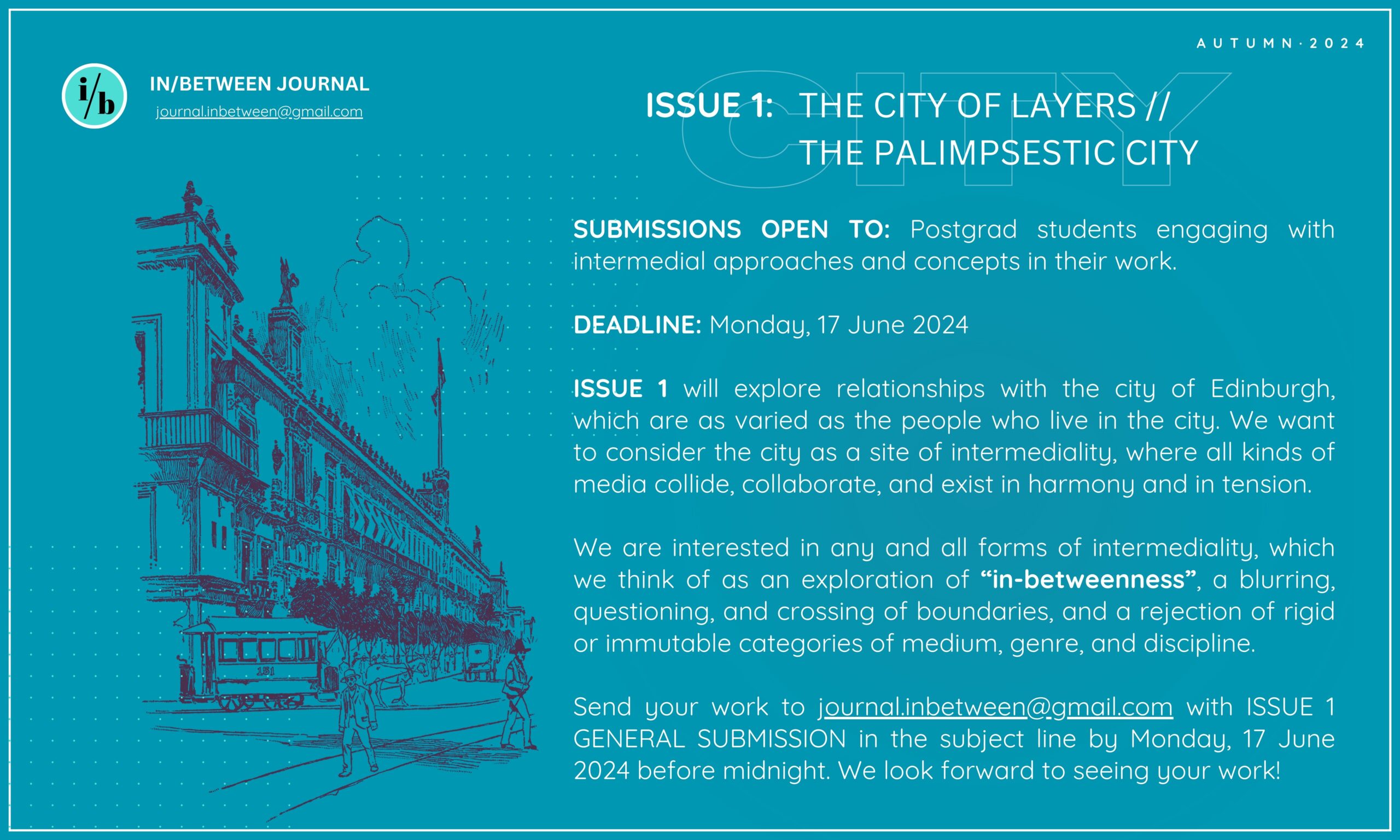WORLD LITERATURE AND INTERMEDIALITY
An International and Interdisciplinary Workshop
Launch event of the new EUP book series “Edinburgh Critical Studies in World Literature and Intermediality”
University of Edinburgh – Thursday 13 and Friday 14 March 2025
* Click here to download the conference programme, or scroll down to see it online. For an abridged version, please follow this link
Over the past few decades, both World Literature and Intermediality have become well-established yet hotly debated concepts and fields of academic inquiry. However, they were developed and often treated as separate critical frameworks. In this second joint workshop of the research partnerships in intermedial studies between the University of Edinburgh and Meiji University (Tokyo, Japan), Linnaeus University (Sweden) and Aix-Marseille University (France), we wish to investigate the shared theoretical concerns between these two areas, renegotiating text-based approaches to World Literature with methods developed to study the intersections between other art forms.
World Literature designates the circulation of works from a global perspective, beyond their country and language of origin; it corresponds to an area of studies that emerged around the turn of the millennium with a specific set of theories informed by Postcolonialism, Cultural and Translation Studies. The emphasis of this critical framework is on the deconstruction of boundaries between disciplines, languages, cultures and media in the reception and study of literary works, beyond a Eurocentric perspective, an approach which makes it compatible with the interdisciplinary tenet of Intermediality. The latter has emerged as a prominent area of research in the Arts and Humanities since the 1980s. Focusing on the interrelationship between literature and other art forms, such as music, painting, photography, film, sculpture, architecture, dance, opera, video games, theatre and performance, Intermediality covers a broad range of border-crossing aesthetic phenomena like the graphic novel or photo-literature that we would like to investigate from the global and transversal perspective of World Literature. We also wish to explore the increasing reliance on a variety of media and art forms in the production of literary texts, which corresponds to a major aesthetic trend in World Literature. These aesthetic explorations fueled by migrations, multilingualism, transcultural interactions, and multi-media artistic practices are, indeed, rapidly reshaping the production, circulation, reception, and critical analysis of literary and artistic works on a global scale.
This event will mark the launch of the new EUP book series “Edinburgh Critical Studies in World Literature and Intermediality”, which shares the key aims of the workshop.
Themes, issues and methodologies to be explored include:
-creative code- and mode-switching practices such as photo-literature, the graphic novel, screen adaptation, ekphrasis, and word and music/image combinations.
-intercultural and intermedial relations in all literary genres (novels, life writing, poetry, theatre…) produced in English and other languages across the globe.
-critical inquiries fostering interdisciplinarity and a global approach to literature and other art forms, including music, painting, drawing, photography, cinema, theatre and performance, opera, video games, installation art, architecture, dance, graphic novels and manga.
-translation between languages, cultures and media, i.e. intermedial translation processes.
-translingualism, multilingualism and medial transpositions.
-multi-art, intermedial aesthetic movements (e.g. Dada, Surrealism, Fluxus…).
-approaches showcasing work by non-Western scholars and/or on non-Western topics (Middle East, Africa, Asia, Latin America…).
Proposed timetable
Each paper should be around 15 minutes. Question sessions should be 20-30 minutes and are held after all the papers on the panel.
Thursday 13 March
Chrystal MacMillan Building, Seminar Room 1 (ground floor)
09:10-09:15 Welcome & Workshop Introduction
09:15-10:00 Keynote 1: Niklas Salmose (Linnaeus), “The Medial Affordances of Nostalgia”
(Chair: Fabien Arribert-Narce)
10:00-11:15: Panel 1: Intermedial border crossings – from theatre and poetic prose to various screen (non-)adaptations and live performances (Chair: Inma Sanchez-Garcia)
-Federica G. Pedriali (Edinburgh), “‘Invisible Cities’: Intermedial Variations and the Global Utopia of Art”
-Sébastien Lefait (Aix-Marseille), “Seeing Shakespeare everywhere. From the intermedial presence of Shakespearean patterns to a definition of non-adaptation”
-Lily Beckett (Bristol), “On the Perimeters of Poetry and Performance: ‘Significant Geographies’ and Intermedial Form in Bhanu Kapil’s Ban en Banlieue (2014)”
11:15-11:30 Coffee break
11:30-12:45 Panel 2: Intercultural adaptations between Eastern and Western canons – from pre-modern literature to film and other contemporary media (Chair: Beate Schirrmacher)
-Benoît Tane (Aix-Marseille), “Intermediality and Interculturality in the Globalized Reception of Laclos’s Les Liaisons dangereuses”
-Mariko Naito (Meiji), “Humans like dolls or dolls like humans? A transmedial analysis of the premodern Japanese play The Courier for Hell (1711) and the film Dolls (2002)”
-Yufeng (Lincoln) Li (Edinburgh), “Reimagining the Epic of Gilgamesh through Generative AI: a Vision for a Posthuman Literature-to-film Adaptation”
12:45-13:45 Lunch break
Lister Learning and Teaching Centre, Room 4.3 (fourth floor)
13:45-14:35 Panel 3: Intermedial afterlives – the journey of iconic characters across cultures and media (Chair: Sébastien Lefait)
-Saana Sutinen (Linnaeus), “The Journey of Superhero Film Music Across Media and the Globe”
-Ruth Menzies (Aix-Marseille), “Popularity, politics and populism: Gulliver’s travels in cartoon and caricature”
14:35-15:25 Panel 4: Poetry, music and painting – the transmission of affect between silence and singular voices (Chair: Sarah Tribout-Joseph)
-Benoît Loiret (Edinburgh), “Poets listening to the silent music of painting: John Ashbery’s and Yves Bonnefoy’s art criticism”
-Alexandra Huang-Kokina (Edinburgh), “AI Crafting Collective Creativity? The case of adapting Yotsuya Kaidan (a Kabuki Play) into science-fiction opera”
15:25-15:45 Coffee break
15:45-17:00 Panel 5: On the production, translation and circulation of books in a global market (Chair: Jørgen Bruhn)
-Beate Schirrmacher (Linnaeus), “What is literature if not a book? An intermedial approach to literature in a digitized world”
-Alex Watson (Meiji), “Packaging Japan: Paratexts for English Translations of Japanese Literature”
-Martin van der Linden (Linnaeus), “Dark Academia and Its Discontents: The Aesthetics of the Western Canon on BookTube”
17:15-18:30 Graduate networking session
Friday 14 March
50 George Square, Project Room (Room 1.06, first floor)
09:15-10:00 Keynote 2: Shuangyi Li (Bristol), “Intermediating Sino-African Transcultural Memory: Yvonne Owuor’s The Dragonfly Sea and Zao Wou-Ki’s Paintings”
(Chair: Fabien Arribert-Narce)
10:00-10:50: Panel 6: Museums, archives and memory – articulating multiple voices and identities via reclamation and resistance (Chair: Alex Watson)
-Laura Osorio Salazar (Edinburgh), “Hidden possibilities in the ‘museum world’: An Experience of Interaction and Resistance at the Museo de la Ciudad Autoconstruida”
-Andy Stafford (Leeds), “‘Belsunce, Don’t forget me!’ Anonymous Passport Photos in Marseille and Multiple Voices of Reclamation”
10:50-11:05 Coffee break
11:05-12:20 Panel 7: Intermedial ecocriticism – storytelling and eco-media in a global economic system (Chair: Niklas Salmose)
-Jørgen Bruhn (Linnaeus), “Environmental Grotesque Ecomedia”
-Anna Ishchenko (Linnaeus), “Environmental Melancholy in Disco Elysium as an Intermedial Narrative Experience: Exploring Transmediations of the Ecological Crisis Conditions in Narrative Video Games”
-Yagmur Atlar (Linnaeus), “Creating Ecologies to Communicate: An Intermedial Analysis of Chantal Bilodeau’s Sila”
12:20-13:20 Lunch break
13:20-14:10 Panel 8: Transcultural re-interpretations and appropriations in global literature and cinema (Chair: Alice Blackhurst)
-Julia Larsen (Edinburgh), “The Monstrosity Between: The Remediated and Transculturated Zombie, from Haiti to the United States”
-Evan Falls (Edinburgh), “Poetry of the Mundane: How Directors Use Musicality to Develop Theme in Paterson and Perfect Days”
14:10-15:00 Panel 9: Intermedial cinema – phenomenology, hypermediacy and remediations (Chair: Inma Sanchez-Garcia)
-Weiyi Yan (Edinburgh), “The Gaze in Portrait of a Lady on Fire (2019): Phenomenological Intersections of Painting and Film”
-Sirui Xu (Edinburgh), “A Life in Counterpoint: Chronicle of Anna Magdalena Bach as an Anti- and Meta-Biopic”
15:00-15:25 Coffee break
15:25-17:00 Panel 10: Ways of reading/looking – genre-defying fiction and textual hybridity (Chair: Emmanuelle Lacore-Martin)
-Rumiko Oyama (Meiji), “What Transduction of the Written Narrative Reveals: Reading ‘Blanks’ in Kazuo Ishiguro’s A Pale View of Hills”
-Alexandra Smith (Edinburgh), “Joseph Brodsky’s essay ‘Flight from Byzantium’ (1985) as Postmodern Literary Tourism”
-Niki Cleland-Hura (Edinburgh), “Liberation through Media Subversion: Intermediality in Alain Locke’s The New Negro”
-Marco Ruggieri (Edinburgh), “Double Intermediality in Umberto Eco’s The Mysterious Flame of Queen Loana”
Previous Events and CFPs:
Intermedia in Italy:
From Futurism to Digital Convergence
6th February 2025, 2.00-3.30pm
4.01, Lister Learning and Teaching Centre
University of Edinburgh
In Italy at the turn of the twentieth century, the arts drew suddenly closer: a curtain was raised on a magical new hybrid art, cinema. There followed an escalation in the birth of new hybrid genres like sound art, video art, graphic art and performance art and new sites and technologies for hybridity were developed: television, video projection, museums as white boxes, computers, the Internet. Some of Italy’s best-known artists and groups got involved in various ways, from the Futurists to Bruno Munari, Pier Paolo Pasolini, the Gruppo 63, Gianni Toti, Niccolò Ammaniti, and Wu Ming. Many artists we know less well often charted this in-between creative world. At this event, Clodagh Brook, Florian Mussgnug, and Giuliana Pieri will join Emanuela Patti to discuss their book Intermedia in Italy: From Futurism to Digital Convergence. Together, they will explore how the ever-evolving interplay between artistic practices has served as a powerful cultural force shaping creativity since the early twentieth century. Their volume attempts the first large-scale mapping of this force, providing a new framing, and along the way attempts to uncover some of the reasons behind this change.
Clodagh Brook is Professor in Italian at Trinity College, Dublin
Florian Mussgnug is Professor of Comparative Literature and Italian Studies at University College London
Giuliana Pieri is Professor of Italian and the Visual Arts at Royal Holloway, London.
Intermediality and Arts: New Connections
Friday 22nd November from 4 to 5.30pm in 50 George Square (G0.6)
4.15-5.15pm: Film and the Other Arts
Barnaby Ralph (University of Tokyo), “Dancing with the Absent Centre: Ken Russell’s Salome’s Last Dance and Mythologised Indifference”
Ayako Otomo, “Le Roi danse: Historical Realisation and Musical-Political Theatre”
***
5.30-6.30pm: Image and Text
Andy Stafford (University of Leeds), “Intermediality in Guadeloupe’s Cane-fields: Raphaël Confiant and David Damoison Cutting a Photo-text”
Fariha Asghar (Bahauddin Zakariya University/University of Leeds), “Text/image in Pakistani Political Discourse: Photographic Legitimation Analysis in Memoirs by Ayub khan and Pervez Musharraf”
***
WORLD LITERATURE AND INTERMEDIALITY
An International and Interdisciplinary Workshop
Launch event of the new EUP book series “Edinburgh Critical Studies in World Literature and Intermediality”
Thursday 13 and Friday 14 March 2025, University of Edinburgh
Keynote speaker: Dr Shuangyi Li (University of Bristol)
Please send your abstract and short bio-bibliographical note to F.Arribert-Narce@ed.ac.uk
250-word Abstract Submission deadline: 1st December 2024
Over the past few decades, both World Literature and Intermediality have become well-established yet hotly debated concepts and fields of academic inquiry. However, they were developed and often treated as separate critical frameworks. In this second joint workshop of the research partnerships in intermedial studies between the University of Edinburgh and Meiji University (Tokyo, Japan), Linnaeus University (Sweden) and Aix-Marseille University (France), we wish to investigate the shared theoretical concerns between these two areas, renegotiating text-based approaches to World Literature with methods developed to study the intersections between other art forms.
World Literature designates the circulation of works from a global perspective, beyond their country and language of origin; it corresponds to an area of studies that emerged around the turn of the millennium with a specific set of theories informed by Postcolonialism, Cultural and Translation Studies. The emphasis of this critical framework is on the deconstruction of boundaries between disciplines, languages, cultures and media in the reception and study of literary works, beyond a Eurocentric perspective, an approach which makes it compatible with the interdisciplinary tenet of Intermediality. The latter has emerged as a prominent area of research in the Arts and Humanities since the 1980s. Focusing on the interrelationship between literature and other art forms, such as music, painting, photography, film, sculpture, architecture, dance, opera, video games, theatre and performance, Intermediality covers a broad range of border-crossing aesthetic phenomena like the graphic novel or photo-literature that we would like to investigate from the global and transversal perspective of World Literature. We also wish to explore the increasing reliance on a variety of media and art forms in the production of literary texts, which corresponds to a major aesthetic trend in World Literature. These aesthetic explorations fueled by migrations, multilingualism, transcultural interactions, and multi-media artistic practices are, indeed, rapidly reshaping the production, circulation, reception, and critical analysis of literary and artistic works on a global scale.
This event will mark the launch of the new EUP book series “Edinburgh Critical Studies in World Literature and Intermediality”, which shares the key aims of the workshop. We invite abstracts for twenty-minute papers in English exploring the topic of the workshop as broadly and creatively as possible. Contributions on other topics related to intermediality and multimodality studies will also be considered.
Themes, issues and methodologies to be explored and considered include:
-creative code- and mode-switching practices such as photo-literature, the graphic novel, screen adaptation, ekphrasis, and word and music/image combinations.
-intercultural and intermedial relations in all literary genres (novels, life writing, poetry, theatre…) produced in English and other languages across the globe.
-critical inquiries fostering interdisciplinarity and a global approach to literature and other art forms, including music, painting, drawing, photography, cinema, theatre and performance, opera, video games, installation art, architecture, dance, graphic novels and manga.
-translation between languages, cultures and media, i.e. intermedial translation processes.
-translingualism, multilingualism and medial transpositions.
-multi-art, intermedial aesthetic movements (e.g. Dada, Surrealism, Fluxus…).
-approaches showcasing work by non-Western scholars and/or on non-Western topics (Middle East, Africa, Asia, Latin America…).
***
In/Between is a forthcoming practice-based journal conceived, led and run by our MSc and PhD Intermediality students!
Click on the image below for further details, or here to access the full CFS and to follow In/Between across social media.
Informal Confessions of an Unformed Storyteller
Ujaan Ganguly, actor – writer – film director
Tuesday, 28 May 2024 at 3.30pm
In-person and online, Screening Room (G.04), 50 George Square

Ujaan Ganguly is an Indian actor, writer, and director, based out of Calcutta, working across live action and animation. His second film as an actor, An Angel’s Kiss (2022) featured in the Official Selection category of the Academy Awards qualified Heartland International Film Festival, the RapidLion International Film Festival (South Africa), and the Mar Del Plata International Film Festival (Argentina). After obtaining the prestigious Ertegun Scholarship, Ujaan post-graduated from the University of Oxford in 2022 with a distinction in World Liter atures. Since then, Ujaan has not only been writing shows for Indian OTT platforms, but also creating an animated series based on the Indian epic Mahabharata for Nickelodeon and Jio Studios. Ujaan remains an ardent admirer of the Intermediality programmes at the University of Edinburgh, and is enthused about speaking to the students about his limited yet enriching experiences as a storyteller.
Cinematicity and Affective Intermediality
Professor Ágnes Pethő (Sapientia University)
Wednesday, 24 April 2024 at 5.30pm
Screening Room (G.04), 50 George Square
Cinematic sensations have become a ubiquitous part of our lives, of a world unfolding as a moving spectacle in front of our eyes. Furthermore, today’s media landscape is dominated by the diverse forms of digital images coexisting with the traditional arts. Accordingly, the study of cinematic intermediality needs to remap its own terrain to include more subtle interactions within this new area of intermedial connections occurring between the old and new regimes of images, between the traditional theatrical cinematic experience and the cinematicity of artworks in a gallery, of moving images on our digital devices.
“Cinematicity” can be attributed to various forms of moving images, and – as Jeffrey Geiger and Karin Littau specify in their book on Cinematicity in Media History (2013) – it can only “be understood intermedially:” as any characteristic of cinema that we recognize in something other than cinema itself. It may precede and prefigure the invention of cinema, it can infuse literature, photography, painting, and new media, as well as everyday phenomena – and all of these can be self-reflexively highlighted in film. We need to consider therefore cinematicity as a highly challenging area of intermedial studies.
In this presentation, I will address this challenge by focusing on films that foreground occurrences of cinematicity: through brief case studies of a variety of moving image artworks (experimental, gallery film, feature film made for cinema), I will explore the juxtaposition of stasis and motion, cinema and the other arts, the pre-cinematic impressions of audio-visual animation and the post-cinematic proliferation and relocation of cinematic experiences. These aesthetic strategies involving intermedial dialogues through cinematicity all convey an affective encounter with reality and accordingly, their particular politics of impurity highlighting the intersections of art and life, as well as key issues regarding our
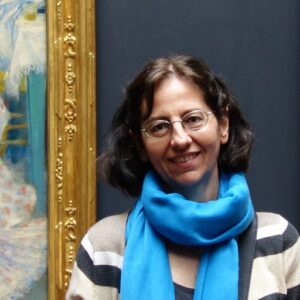
relationship with images.
Ágnes Pethő is Professor of Film Studies at the Sapientia Hungarian University of Transylvania in Cluj-Napoca, Romania. She is the author of the monograph, Cinema and Intermediality. The Passion for the In-Between (2011), which was revised and enlarged for the second edition in 2020. She has also written several articles and edited a series of books on topics related to intermediality in cinema, including Caught In-Between. Intermediality in Eastern European and Russian Cinema (2020), The Cinema of Sensations (2015), Film in the Post-Media Age (2012), Words and Images on the Screen (2008).
She is the executive editor of the journal Acta Universitatis Sapientiae, Film and Media Studies (indexed and tracked for impact factor in the Web of Science – ESCI), which frequently publishes special issues and articles on intermediality. Currently she is the PI of the exploratory research project, Affective Intermediality. Cinema between Media, Sensation and Reality supported by a grant of the Romanian Ministry of Research.
THEORIES AND PRACTICES OF INTERMEDIALITY TODAY
An International and Interdisciplinary Workshop
University of Edinburgh
Thursday 14 and Friday 15 March 2024
In this first joint workshop of the research partnerships in intermedial studies between the University of Edinburgh and Meiji University (Tokyo, Japan), Linnaeus University (Sweden) and Aix-Marseille University (France), with guests from IULM Milano (Italy), we wish to explore exciting new developments in the field of Intermediality studies, both in terms of theories and practices. What are the most prominent ways of approaching intermediality and multimodality today, and how can these trends, critical traditions and their respective concepts be put into dialogue, combined or transformed in artistic practice? How can ideas and methods used in one of these analytical or artistic modes facilitate creative innovation in another? How can critical approaches conventionally applied to one medium or art form help us to better understand another? More generally, how can bringing into contact different artistic traditions ranging from classic to more contemporary media spur creativity and the construction of new kinds of aesthetic experience and semiotic interpretations? How do specific media and art forms interact in and between different cultures and historical eras, in the context of pressing lines of enquiry such as eco-criticism, gender studies, and postcolonialism and decolonization studies?
Exchanges in this workshop will be greatly enriched by crossed cultural and academic perspectives between our respective institutions. We seek to initiate a discussion between established scholars of intermediality, early-career colleagues and research students that will help us forge new creative and critical positions in this fast-developing field of study—a field which has prompted some of the most original concepts and critical theories since the beginning of the 21st century.
Each paper should be around 15 minutes. Question sessions should be 20-30 minutes and are held after all the papers on the panel.
Thursday 14 March
Morning sessions, 40 George Square; Afternoon sessions, Appleton Tower
40 George Square, Room LG.09 (Lower Ground floor)
09:20-09:30 Welcome & Workshop Introduction
09:30-10:30 Panel 1: Intermedial Nostalgia, Archive and Memory (Chair: Fabien Arribert-Narce)
-Niklas Salmose (Linnaeus), ‘Intermedial Nostalgia’
-Dagmar Brunow (Linnaeus), ‘Transmediating Audiovisual Memory: Activating an Archive of Possibilities through the Photofilm’
10:30-10:45 Coffee break
10:45-12:00 Panel 2: Intermediality and Ecocriticism (Chair: Emanuela Patti)
-Jørgen Bruhn (Linnaeus), ‘Intermedial Ecocriticism – and beyond’
-Felicia Stenberg (Linnaeus), ‘Make It Make Sense: Internet Memes In Space Opera as Tools for Grasping Environmental Crisis’
-Matilda Davidsson (Linnaeus), ‘Intermedial Angles on a Cat’s Journey: First Cat Perspective in Novel Stray (1987) and Video Game Stray (2022)’
12:00-13:00 Lunch break
Appleton Tower, Room 2.14 (Second floor)
13:00-14:00 Panel 3: Intermedial Theatre (Chair: Inma Sanchez-Garcia)
-Yagmur Atlar (Linnaeus), ‘Remediation of Actualisation Through Semi-Virtuality in Tim Crouch’s Truth’s a Dog Must to Kennel’
-Déborah Prudhon (Aix-Marseille), ‘Intermedial Dialogue Between the Page and the Stage: Tim Crouch’s Total Immediate Collective Imminent Terrestrial Salvation (2019)’
14:15-15:30 Panel 4: Intermedial Modernity, Generic Hybridity and The Poetics of Gameplay (Chair: Rumiko Oyama)
-Gil Charbonnier (Aix-Marseille), ‘“A little too much is just enough for me”: Jean Cocteau’s Intermediality in Menton’
-Julia Larsen (Edinburgh), ‘“To Literally Become a House”: Gothic Cinematic Intermediality in Guillermo del Toro’s Crimson Peak (2015)’
-Emanuela Patti (Edinburgh), ‘Analysing Electronic Literature through Umberto Eco’s Opera aperta’
15:30-15:45 Coffee break
15:45-17:00 Panel 5: Between Speech and Writing, Images and Texts, Bodies and Faces (Chair: Niklas Salmose)
-Mariko Naito (Meiji), ‘Poetry as a Phonetic and Temporal Art Form or a Graphic and Spatial One? The Intermediality of Japanese Poetry in Medieval Japanese Poetics’
-Matthis Hervieux (Edinburgh), ‘Dany Laferrière’s Intermedial Practice: Between Haiti and Japan, Text and Painting’
-Alex Watson (Meiji), ‘The Face of the Pacific: Sydney Parkinson’s A Journal of a Voyage to the South Seas (1773)’
Friday 15 March
50 George Square, Project Room (Room 1.06, First floor)
09:15-10:30 Panel 6: Digital Environments and Pedagogical Matters (Chair: Ruth Menzies)
-Rumiko Oyama (Meiji), ‘Exploring Multimodal Factors in Literature: A trans-modal Approach to Literary Texts in the L2 Classroom’
-Anna Calise (IULM, Milano), ‘Museum MOOCs, Intermedial Landscapes of Experience’
-Elodie Burle-Errecade and Valérie Gontero-Lauze (Aix-Marseille), ‘How to Analyze a Medieval Manuscript through the Prism of Intermediality?’
10:30-10:45 Coffee break
10:45-12:00 Panel 7: Intermedial Transfers – Multimodality and Databases (Chair: Alex Watson)
-Alexandra Huang (Edinburgh), ‘Exploring the Performativity of Affect in the Intermedial Musical Poetry of Ojārs Vācietis’
-Martin van der Linden (Linnaeus), ‘Shinto, the Sacred, and “Like and Subscribe”: Theorizing the Potential for a Multimodal-Intermedial Analysis of YouTube Videos’
-Ema Tanaka (Meiji), ‘An Implication from the Linking between “Japan Search” and “Media Arts” Database – How popular culture became recognized as media art?’
12:00-13:00 Lunch break
13:00-14:00 Panel 8: Music, Song and Poetry (Chair: Emanuela Patti)
-Martin Knust (Linnaeus), ‘Speech, Song and the Materialities of Music’
-Benoît Loiret (Edinburgh), ‘Yves Bonnefoy and Musicians: Music, Poetry, Silence’
14:15-15:30 Panel 9: Film, Theatre, Drawing and Other Media – between Aesthetic and Ethical Concerns (Chair: Inma Sanchez-Garcia)
-François Giraud (Edinburgh), ‘Bodies and Screens: The Practice of Online Life Drawing during the Covid-19 Lockdowns’
-Anna Ishchenko (Linnaeus), ‘The Poetics of Gameplay and the Poetics of Ambience in the Video Game Kentucky Route Zero (2013-2019)’
-Katie Pleming (Edinburgh), ‘Staging symbolic violence at the interstices of film and theatre: Alice Diop’s La Mort de Danton (2011)’
15:30-15:45 Coffee break
15:45-16:45 Panel 10: Intersemiotic Adaptations and Remediations (Chair: Fabien Arribert-Narce)
-Vincenzo Di Rosa (IULM, Milano), ‘The Exhibition as Fiction: Intermedial practices in curatorial adaptations’
-Ruth Menzies (Aix-Marseille), ‘From Gulliver to Goveller: an intermedial reappropriation of Swift’s Gulliver’s Travels’
‘The solid reality of a piece of ore’: Alain Resnais’s Guernica (1950), by Dr Tamara Trodd (Edinburgh College of Art)
Tuesday, 27 February, 5.15pm
40 George Square, Lecture Theater B
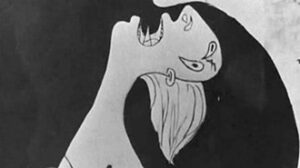
Still from Alain Resnais, Guernica, 1950.
Alain Resnais’s 14-minute film, Guernica (1950), co-directed with Robert Hessens, with a script by Paul Éluard and music by Guy Bernard, is a film composed entirely of a montage of still images: a combination of historic photographs of the bombing of the Basque town, Guernica, in 1937, with close-ups of paintings and sculptures by Pablo Picasso. To an extent it may be understood as continuing a tradition of the European ‘art’ film: a once-popular and mainstream form of cinema, represented for example by the films of Italian director, Luciano Emmer, or the Belgian director Henri Storck. And yet Resnais’s film also radically departs from this genre: its reference to the recent, real-world atrocity of the bombing and its use of an intensely expressive musical score transforming the work into a film which speaks forcefully not just about art, but also about recent history and politics. Marking a break too with Resnais’s own previous style, as established in his more conventional earlier films, Van Gogh (1948) and Gauguin (1949), Guernica is still astonishing in its impact on the viewer today; as well as in the extent to which it announces a seemingly fully-formed, radical and accomplished style, which can be seen to have shaped later works of French cinema including Chris Marker’s La Jetée (1962). In this talk I will examine the ways in which, with Guernica, Resnais shows us how the close scrutiny of art may in André Bazin’s words, ‘take on the solid reality of a piece of ore’: in so doing contributing to a wider reworking of the way in which art may take purchase on ‘reality’, at this moment in mid-century modernist art.
Tamara Trodd is Senior Lecturer in Modern and Contemporary Art in the History of Art department at the University of Edinburgh. She is currently completing a new book, Realism Reconfigured: Historical Returns in Contemporary Art. She is the author of The Art of Mechanical Reproduction: Technology and Aesthetics from Duchamp to the Digital (Chicago, 2015), and the edited collection, Screen/Space: The Projected Image in Contemporary Art (Manchester, 2011). Her essay, ‘Creation and Decreation in Tacita Dean’s Antigone’ is forthcoming in October.
Night of Intermediality
Tuesday, 28 November, 6-10 pm
The MSc Intermediality: Literature, Film and the Arts in Dialogue is celebrating its first Night of Intermediality. Join us for an exciting showcase of students’ practice-based projects and creative work, including videos, music, photography and film scripts. All welcome!
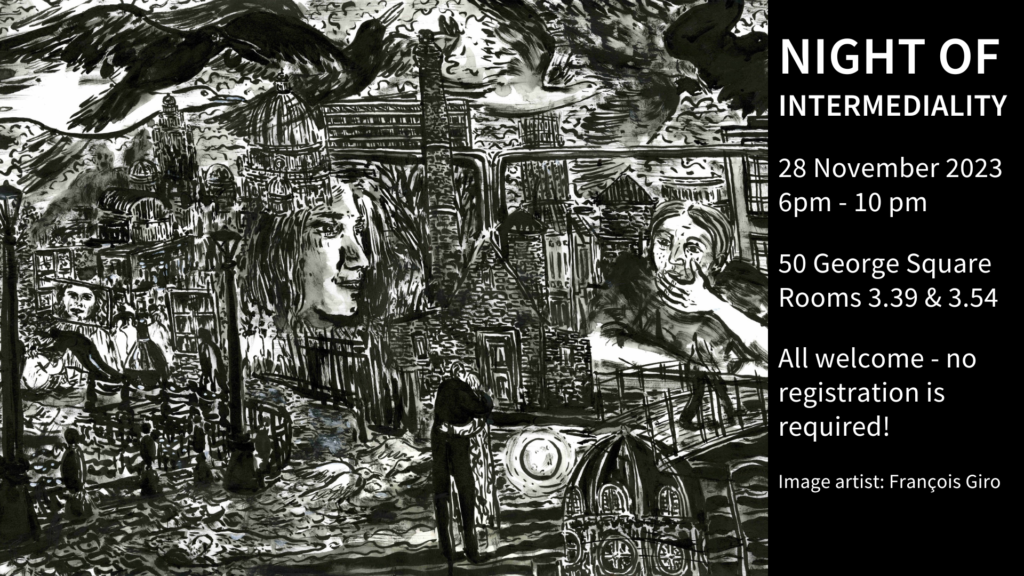
‘Intermedial Ecocriticism’, by Professor Niklas Salmose (Linnaeus University)
Date: Wednesday 4th October, 5pm.
All too often overlooked in the reports on recent alarms about climate change is more thoughtful attention to how these alarms get dispersed through scientific papers, news reports, fictional stories, films, graphic novels, and videogames. Arguing that different media carry the potential to engage audiences in vitally different ways, this talk presents a powerful case for giving experts in media and intermediality a seat at the table of Environmental Humanities. Bringing an intermedial approach to the study of a wide range of ecomedia, the presentation adds a much-needed perspective to the larger discourse around representation and reception within the environmental humanities: an explicit interest in the roles of media and mediation. It presents a comprehensive theory and method that allows us to systematically compare different media products representing climate change and other environmental crises without losing sight of their specific affordances and potential ecological agency.
Niklas Salmose is Professor of English at Linnaeus University, Sweden, and a full member of the Linnaeus University Center of Intermedial and Multimodal Studies. He is the co-coordinator for the new graduate school MIDWorld, engaging international researchers and doctoral students in an investigation of how intermediality/multimodality figures in the rapid digitization of society. Salmose has published extensively on nostalgia, modernism, F. Scott Fitzgerald, intermediality and in the past five years on environmental humanities. Publications include several chapters in the Routledge textbook Intermedial Studies: An Introduction to Meaning Across Media), Contemporary Nostalgia (2019), Transmediations. Communication across Media Borders (2019), Cultural Comets (2022), F. Scott Fitzgerald: A Composite Biography (2023), chapters on intermedial ecocriticism and sonification of modernist fiction in the Palgrave Handbook of Intermediality (2023), and most recently the co-authored monograph Intermedial Ecocriticism: The Climate Crisis through Art and Media (2023).
Workshop ‘Intermediality in the City’, led by Dr François Giraud
Date: Wednesday 17th May
Summary:
During this workshop, we will observe intermedial connections within a specific urban environment and will use different mediums (including photo, video, sketching, and writing) to record our impressions and thoughts. In doing so, we will observe and experience the city as an intermedial space, and reflect on the differences and commonalities between mediums from a practice-based perspective.
Timetable
10-11 am – We will meet in front of the Scottish National Gallery of Modern Art (Modern Two) at 10 am and work on site until 11 am.
11 am-1 pm – Students will continue their exploration of the city on their own.
1-2 pm – Lunch Break
2 pm-3 pm – Debrief session on campus (50 George Square Project Room 1.06)
***
Intercultural Transfers and Translations Across Media
Third Workshop of the University of Edinburgh-Meiji University Research Partnership in Intermedia Studies
Friday 10th March 2023, 10.15 am – 3.30 pm
University of Edinburgh, Lister Learning and Teaching Centre (LLTC), Room 4.3
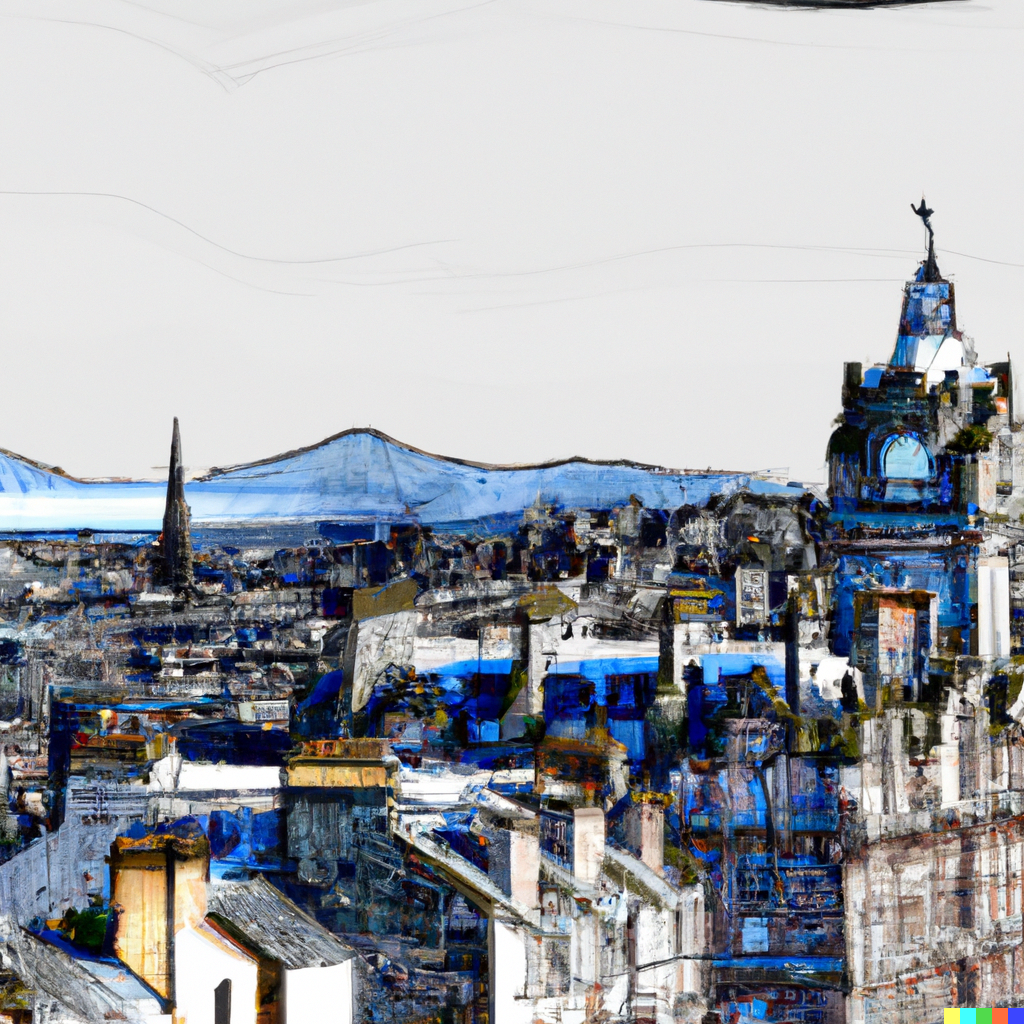
Kindly generated by the intemedial AI system DALL-E with the textual prompt ‘A landscape painting of Edinburgh in the style of Hokusai’
10:30am: Introduction, by Dr Fabien ARRIBERT-NARCE (University of Edinburgh)
10:35–12:00 Panel 1: Aesthetic Transfers and Translations between Image and Text
Rumiko OYAMA (Meiji University, Tokyo), ‘Translatability in Literary Texts: The Verbal and Visual Translation of “Japaneseness” in Kyoko Nakajima’s The Little House’
Xingtong ZHOU (University of Edinburgh), ‘(Anti)-Representational Politics: Photography in Yoko Tawada’s The Bath’
Katie PLEMING (University of Edinburgh), ‘Marguerite Duras’s Les Mains négatives and Photographic Theory’
13:10–14:10 Panel 2: Intercultural Transfers and Mutations Across Media
Alex WATSON (Meiji University, Tokyo), ‘The World in Miniature: Walter Benjamin and Phillip de Loutherbourg’s Eidophusikon (1781)’
Alexandra SMITH (University of Edinburgh), ‘Adaptation as Mutation: Michael Mayer’s Cinematographic Version of Chekhov’s The Seagull (2018)’
14:30–15:30 Panel 3: Shakespearean Adaptations
Masahiro KOBAYASHI (Meiji University, Tokyo), ‘Painting Shakespeare: John Millais’ Ophelia (1851-2) and Eugène Delacroix’s The Death of Ophelia (1834)’
Inma SANCHEZ-GARCIA (University of Edinburgh), ‘Queer Cinematic Shakespeare: Queer Futurity and the Contemporary Romeo and Juliet Short Film’
***
Riveder le stelle: Changing Perspectives in Early Modern Visual Culture
Inaugural Lecture of Professor Davide Messina
Wednesday 8th March 2023, 5.15 pm
Lecture Theatre G.03, 50 George Square
The debate on the apparent movement of the stars was crucial to early-modern astronomy, and it marked a new sense of reality in motion. The cosmological and the cognitive side of the debate were entangled. What was its reflection in the visual arts of the period? By addressing this question, which has surprisingly eluded scholarly attention, this lecture aims to show how early-modern images started to move and became self-aware.
To register your interest in attending the lecture please click the following link Inaugural Lecture: Davide Messina Tickets, Wed 8 Mar 2023 at 17:15 | Eventbrite
Professor Davide Messina obtained his PhD in Philosophy from the University of Bologna. He pursued his post-doctoral research in Italian Studies at Columbia University, New York, where he also became a Visiting Research Fellow at the Center for Comparative Literature and Society. He came to Edinburgh in 2007, as a Lecturer in Italian Studies. He was Director of the MSc in Comparative and General Literature from 2008 to 2011 and Head of Italian Studies from 2014 to 2020. He was appointed to the Chair of Italian and Comparative Studies in September 2019.
Professor Messina’s research is strongly interdisciplinary. It spans a broad range of topics and authors from the early-modern period to contemporary studies, engaging literary history and theory with cultural studies and the arts.
***
Workshop ‘Interdisciplinary Perspectives on Roland Barthes and the Arts’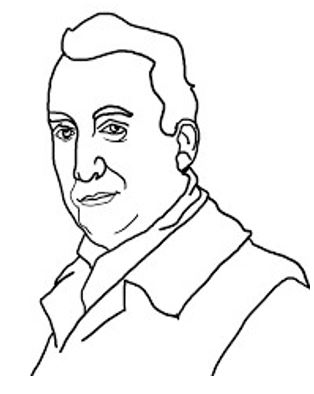
Friday 3rd March 2023, 17.15 – 19.00
University of Edinburgh, 40 George Square, Room LG.11 (Lower Ground)
-Prof. Barnaby Ralph (Seikei University, Tokyo), ‘Reading the Arts Rhetorically: Bacon, Barthes and the Transformation of the Oratorical Metaphor’
-Prof. Fuhito Endo (Seikei University, Tokyo), ‘Psychoanalysis of an Imaginary Closet: Leonardo da Vinci and Roland Barthes’
Discussants:
-Dr Fabien Arribert-Narce (University of Edinburgh); Ann Dai, Wen-Chieh Hsu, Altoria Lin, Jiaheng Lu and Liz Yun (MSc Intermediality students, Univ. of Edinburgh)
***
Intermedial Journey in Search of the Bounty Mutineers
with French writer and artist Sébastien Laurier
When: Tuesday 31st January 2023, 17:15 – 18:00
Where: University of Edinburgh, 40 George Square, Room LG.11 (Lower Ground)
Sébastien Laurier is a writer, actor, theatre director and graphic novel scriptwriter. His work focuses on personal and poetical quests and enquiries which eventually become artistic objects, books, plays and exhibitions. These concrete utopias are an ode to travel, encounters but also intimate explorations (www.sebastienlaurier.com).
He will tell us about his experience of traveling to the Pitcairn Islands (South Pacific) in search of the traces left by, and ghosts of the Bounty mutineers in the eighteenth century, which led to the publication of his 2017 book La Bounty à Pitcairn. Mais que sont les révoltés devenus ? (Editions Zeraq). Sébastien Laurier is currently in the process of adapting this text into a series of graphic novels published by Editions Glénat in France and he will share with us his reflexions on the joys and challenges of intermedial adaptation.
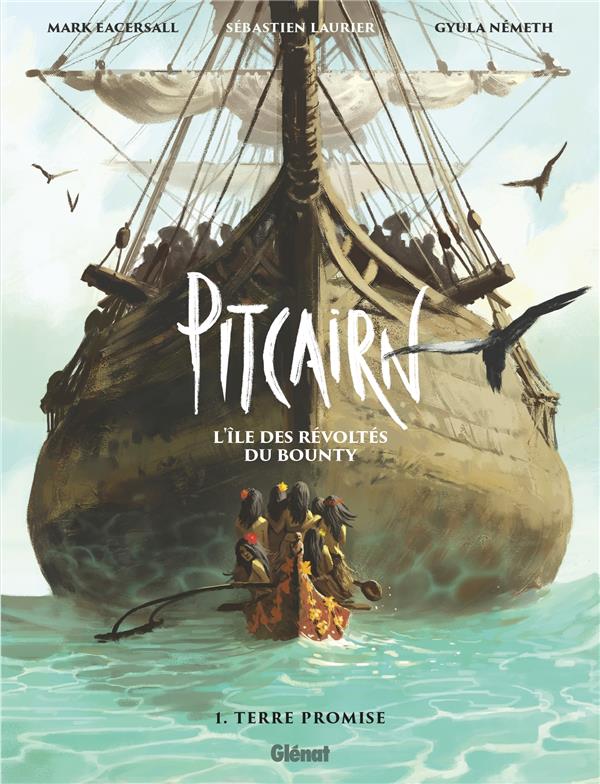
PITCAIRN, graphic novels (see the trailer)
LA BOUNTY A PITCAIRN, book (see a presentation)
MAIS QUE SONT LES REVOLTES DU BOUNTY DEVENUS?, theatre (see the trailer)
Event organised as part of the ‘Intermediality’ Research Strand at the University of Edinburgh, in partnership with the Institut Français d’Ecosse:
Contact: F.Arribert-Narce@ed.ac.uk
***
Architects of Modernism: The Case of Proust
Professor Patrick O’Donovan (University College Cork)
When: Wednesday, 9th November 2022, 5:15 pm
Where: Project Room (1.06), 50 George Square
*Open to all, no need to register, but registration via Eventbrite appreciated to consider catering numbers.
Architecture is a model for modernist fiction, notably so in the work of Marcel Proust and of Virginia Woolf. Architecture is first of all a prototype for each writer’s work: architectural models are invoked as sources of far-reaching literary experiments. But architecture also forms a good deal of the substance of each writer’s work: each is concerned with the writer’s own space and what it represents, and then in turn with the forces that shaped the environments in which they wrote and on which they drew in elaborating their fictional worlds, spaces that testify to rapid urban growth, the rise of the railways and of tourism, innovative and sometimes disruptive forms of modern urban design, increased social stratification, elite sociability, the character of the city as a work of art. These strands will form the focus of the paper, in which, by way of a modest centenary tribute, I will also address some transformations of longer-term traditions in the relation between architecture and literature at Proust’s hands.
Patrick O’Donovan is Professor of French in University College Cork. He studied in Ireland, France and the UK, where he worked for a number of years, up the coast in Dundee and latterly in Cambridge. He is a former editor of the journal French Studies. He has published widely on literature and ideas since 1789, latterly on the poetry of Vigny, on the tradition of the personal novel in France, and on Certeau. His paper today draws on a current project dedicated to Proust’s ‘house of fiction’, on which he has also recently published.
***
Dr Hideyuki Doi (University of Tokyo)
“Pasolini and Mizoguchi”
This lecture is part of a rich series of events, Pasolini and the Classics, organised by our colleague Emanuela Patti for Pier Paolo Pasolini’s 100th anniversary. See the full programme here).
When: Tuesday, 20thSeptember 2022, 4.30-6.00pm
Where: 50 George Square, 329
A surprising aspect of the relationship between Pasolini and Japan is the immediacy with which Japanese youth in the 1960s acknowledged the controversial poet and director and, perhaps more unusually, the reciprocity of the exchange. For example, Pasolini mentioned several times the name of Kenji Mizoguchi, often together with that of Kon Ichikawa: since the mid-50s the Japanese director Mizoguchi is in fact particularly dear to the European public. Furthermore, the direct references between the setting ofOedipus Rexand Japanese historical films are evident: to name one example, one could think of how the “barbaric” face of Franco Citti evokes the world of samurai depicted by director Akira Kurosawa, as well as the use of lights. As Pasolini himself pointed out however, Japanese criticism has hardly ever focused on certain affinities. So this time our presentation aims to underline the shared ambivalent mythic eye inherent in both Pasolini and Japanese writers and filmmakers.
Hideyuki Doi obtained a Ph.D. in Italian Literature at the University of Bologna and is currently teaching Modern and Contemporary Italian Literature at the Faculty of Letters of the University of Tokyo. In recent years his research has developed around the various expressions of the Italian and Japanese avant-gardes of the early 20th century. Among his works: Interlinee: studi comparati e oltre(Cesati, 2021);Guide to Modern and Contemporary Italian History (co-curator, Minerva, 2017, in Japanese); Esperienze friulane di Pasolini: cinque studi (Cesati, 2011).
Dr Inma Sánchez-García (University of Edinburgh)
‘Pasolini and Shakespeare: All the World is (not just) a Stage’
This lecture is part of a rich series of events, Pasolini and the Classics, organised by our colleague Emanuela Patti for Pier Paolo Pasolini’s 100th anniversary. See the full programme here).
When: Tuesday, 21st June 2022. 5.00-6.15pm BST
Where: Zoom. Please register here.
 In 1968, Pasolini referred to Shakespeare as an example of “politically complacent” theatre. A year before this statement, he directed a short adaptation of Shakespeare’s Othello that turned the tragic story of the Moor of Venice into a comedy – Che cosa sono le nuvole? This paper examines Pasolini’s adaptation of Othello as a film that addresses the so-called complacent dimension of Shakespeare’s drama by disrupting the codes of cinema and theatre, drawing attention to the subversive spaces of the in-between around questions of class, race, and gender. In doing so, this talk will consider the film as an adaptation of Shakespeare’s play within the context of Shakespeare’s more elusive presence across Pasolini’s artistic output, from his poetry in La religione del mio tempo to his incomplete novel Petrolio.
In 1968, Pasolini referred to Shakespeare as an example of “politically complacent” theatre. A year before this statement, he directed a short adaptation of Shakespeare’s Othello that turned the tragic story of the Moor of Venice into a comedy – Che cosa sono le nuvole? This paper examines Pasolini’s adaptation of Othello as a film that addresses the so-called complacent dimension of Shakespeare’s drama by disrupting the codes of cinema and theatre, drawing attention to the subversive spaces of the in-between around questions of class, race, and gender. In doing so, this talk will consider the film as an adaptation of Shakespeare’s play within the context of Shakespeare’s more elusive presence across Pasolini’s artistic output, from his poetry in La religione del mio tempo to his incomplete novel Petrolio.
Inma Sánchez-García is Teaching Fellow in Intermediality Studies at the University of Edinburgh, UK. Her research focuses on the intersection between literature and film, with particular attention to the afterlives of Shakespeare on screen. Her book, Shakespeare in European Cinema: Borders, Thresholds, Connections is forthcoming with Palgrave Macmillan. She has published several articles in leading peer-reviewed journals and is co-founder and co-leader of the Feminist and Queer Research workgroup at the European Network for Cinema and Media Studies (NECS).
Dr Sean Mark (Panthéon-Sorbonne University, Paris)
‘Pasolini and Pound: A poetics of crisis’
This lecture is part of a rich series of events, Pasolini and the Classics, organised by our colleague Emanuela Patti for Pier Paolo Pasolini’s 100th anniversary. See the full programme here).
When: Thursday, 19th May 2022. 5.00-6.15pm BST
Where: Project Room 1.06, 50 George Square (University of Edinburgh), and over Zoom by registering at the following link.
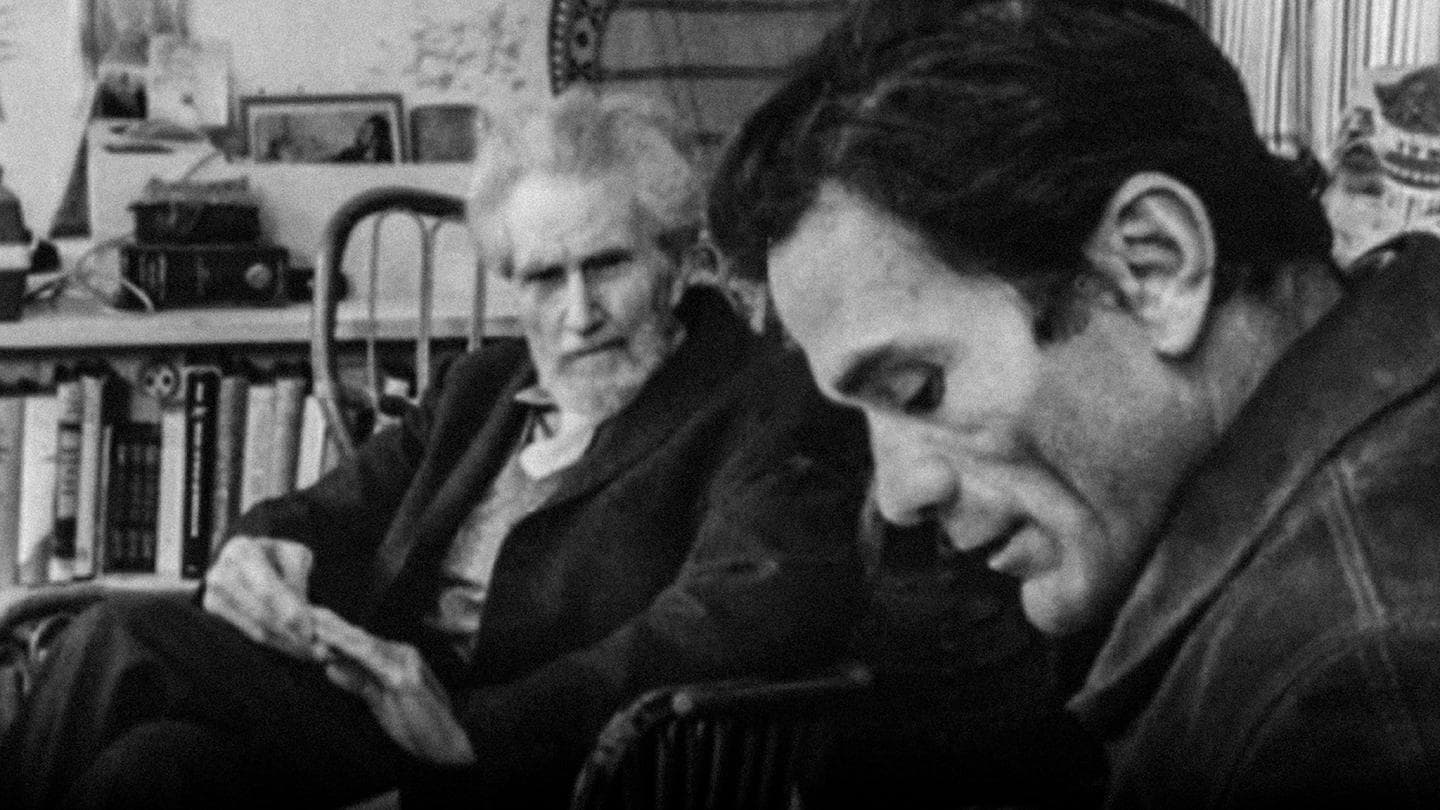 There was a time, in the mid-1950s, when Ezra Pound and Pier Paolo Pasolini could not have stood further apart, belonging to two worlds that appeared irreconcilable—a time when Pasolini described Pound as a ‘racist, a fascist’ and chastised a friend for translating a poet so tarnished by his affiliations with Italian Fascism. And yet a decade later, in October 1967, Pasolini travelled to Venice to interview Pound for broadcast on national television in an event conceived as a clash of opposites. Aside from their political differences—one was a lifelong Marxist, the other a one-time propagandist for the Fascist regime—the 45-year-old Pasolini was at the height of his creative powers, while Pound, at 82, was silent and stuck. This would prove to be Pound’s final interview, and before the cameras he broke the silence that characterised his last decade to discuss his work and legacy. Even more unexpectedly, the American poet would go on to acquire a prominent presence in Pasolini’s work. Interrogating the reasons behind Pasolini’s reconsideration of Pound, this lecture will take the 1967 interview as a prism through which to trace a dialogue, both implicit and explicit, between these poets, across decades, media, and cultures.
There was a time, in the mid-1950s, when Ezra Pound and Pier Paolo Pasolini could not have stood further apart, belonging to two worlds that appeared irreconcilable—a time when Pasolini described Pound as a ‘racist, a fascist’ and chastised a friend for translating a poet so tarnished by his affiliations with Italian Fascism. And yet a decade later, in October 1967, Pasolini travelled to Venice to interview Pound for broadcast on national television in an event conceived as a clash of opposites. Aside from their political differences—one was a lifelong Marxist, the other a one-time propagandist for the Fascist regime—the 45-year-old Pasolini was at the height of his creative powers, while Pound, at 82, was silent and stuck. This would prove to be Pound’s final interview, and before the cameras he broke the silence that characterised his last decade to discuss his work and legacy. Even more unexpectedly, the American poet would go on to acquire a prominent presence in Pasolini’s work. Interrogating the reasons behind Pasolini’s reconsideration of Pound, this lecture will take the 1967 interview as a prism through which to trace a dialogue, both implicit and explicit, between these poets, across decades, media, and cultures.
Sean Mark is Teaching and Research fellow at Panthéon-Sorbonne University in Paris. After graduating from the University of Milan and University College London, he completed a PhD in comparative literature at the universities of Tübingen, Bergamo and Brown on a fellowship from the European Commission, and in 2018–19 was British Academy postdoctoral fellow at the British School at Rome. He has published in The Edinburgh Companion to Ezra Pound and the Arts, Modernism and Food Studies, and has essays forthcoming in The Ezra Pound Studies Biennial, Sillages Critiques and Modernism/modernity. For Chelsea Editions Press, he has edited and translated two books by contemporary Italian poets (Adam Vaccaro’s Seeds and Antonio Sagredo’s Poems), and his translations have appeared in the Italian Poetry Review and In Verse. His first monograph, Pound and Pasolini: Poetics of Crisis, is forthcoming with Palgrave Macmillan.
Ben Bollig (University of Oxford)
‘Book Talk: Moving Verses and The Poetry-Film Nexus’
When: Tuesday, 29 March 2022 | 18:00 – 19:30 BST Where: Online (Zoom)
Ben Bollig (University of Oxford) will discuss two recent books in conversation with Fiona Mackintosh (University of Edinburgh), Marion Schmid (University of Edinburgh) and David M.J. Wood (Universidad Nacional Autónoma de México) The talk with revolve around his recent monograph Moving Verses. Poetry on Screen in Argentine Cinema (Liverpool UP, 2021) and the co-edited volume (with David M.J. Wood) The Poetry-Film Nexus in Latin America. Exploring Intermediality on Page and Screen (Legenda, 2022). About the speakers Ben Bollig is Professor of Spanish-American Literature at the University of Oxford. Ben will be joined by:
- Co-editor of the Poetry-Film Nexus, David M.J. Wood (Investigador titular, Instituto de Investigaciones Estéticas, Universidad Nacional Autónoma de México)
- Fiona Mackintosh (Senior Lecturer in Latin American Literature, University of Edinburgh)
- Marion Schmid (Professor of French Literature and Film, University of Edinburgh)
The talk will be introduced by Jessica Gordon-Burroughs (Lecturer in Latin American Studies and Visual Culture, University of Edinburgh). It is sponsored by Spanish, Portuguese, Latin American Studies (SPLAS), the Centre for Contemporary Latin American Studies (CCLAS, University of Edinburgh) and the Intermediality MSc and Research Strand (University of Edinburgh).
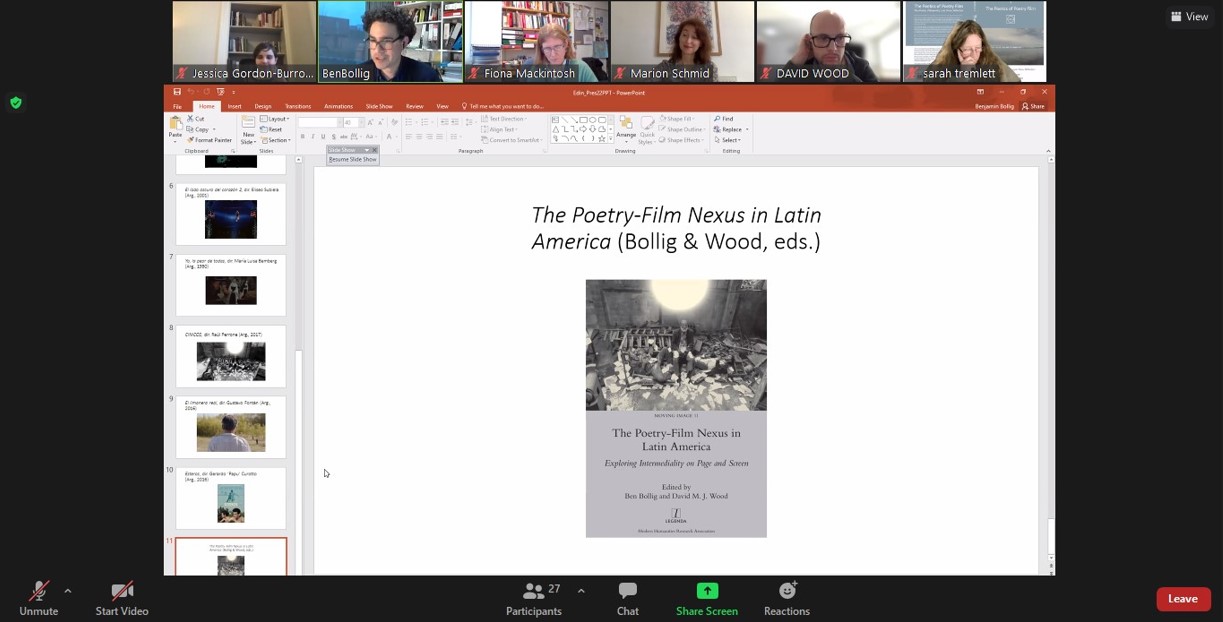
Pascale Aebischer (University of Exeter)
‘The Haunted Stalls: Liveness and the Absent Audience in Pandemic Shakespeare’
When: Monday, 28 March 2022 | 17:30 BST Where: Online (Zoom). The Covid-19 pandemic has accelerated the trend towards digital dissemination of stage productions of Shakespeare and made-for-digital live productions which started to transform how audiences in much of the Western world accessed Shakespeare even before North American and European theatres went dark in March 2020. One of the challenges posed by productions staged and broadcast during the pandemic was how to reimagine the role of the audience in relation to the performers when actors are performing to an empty auditorium and how to negotiate the relationship between what is present and what is absent, between the alive and the dead. 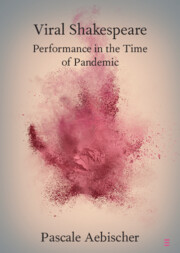 This paper will focus on three productions staged during lockdown: Dimiter Gotscheff’s Hamletmaschine, performed by live actors alongside footage of the late Gotscheff for a performance broadcast from the Deutsches Theater Berlin in April 2020; Johan Simons’ production of Hamlet at the Schauspielhaus Bochum recorded for the Berliner Festspiele Theatertreffen of May 2020, and Zoe Seaton’s Zoom production of Macbeth, performed live for the Belfast International Arts Festival in October 2020. It will investigate how these productions activated the space of the empty auditorium in order to make present the absence of their audiences, turning the empty theatre into a metaphor for the precariousness of aliveness and of theatrical performance in the midst of an environment marked by absence, contagion and death.
This paper will focus on three productions staged during lockdown: Dimiter Gotscheff’s Hamletmaschine, performed by live actors alongside footage of the late Gotscheff for a performance broadcast from the Deutsches Theater Berlin in April 2020; Johan Simons’ production of Hamlet at the Schauspielhaus Bochum recorded for the Berliner Festspiele Theatertreffen of May 2020, and Zoe Seaton’s Zoom production of Macbeth, performed live for the Belfast International Arts Festival in October 2020. It will investigate how these productions activated the space of the empty auditorium in order to make present the absence of their audiences, turning the empty theatre into a metaphor for the precariousness of aliveness and of theatrical performance in the midst of an environment marked by absence, contagion and death.
Pascale Aebischer is Professor of Shakespeare and Early Modern Performance Studies. She specialises in the history of the performance of early modern drama (including Shakespeare), with an emphasis on 1580s-1700 and 1980s-present. She has a particular interest in bodies and performance technologies (from candlelight through social media to ‘live’ theatre broadcast and digital performance). These interests are reflected in her teaching, which focuses on early modern – Restoration theatrical cultures and performance practices, Shakespeare, and present-day performance on stages and screens. From 2021 to 2023, Pascale Aebischer is leading the coordination of the AHRC’s Covid-19 research portfolio as Principal Investigator of The Pandemic and Beyond: the Arts and Humanities Contribution to Covid Research and Recovery.
Inaugural Workshop of the Edinburgh-Meiji Research Partnership
‘Intermedial Encounters Between Image, Music and Text With and Beyond Roland Barthes’
When: Wednesday, 16 March 2022 | 9:00 – 12:00 GMT Where: Hybrid. Online and In-person | Medical School, Doorway 1 | Sydney Smith Lecture Room (2nd Floor, Room 2.520) | EH8 9AG. The University of Edinburgh, Edinburgh.
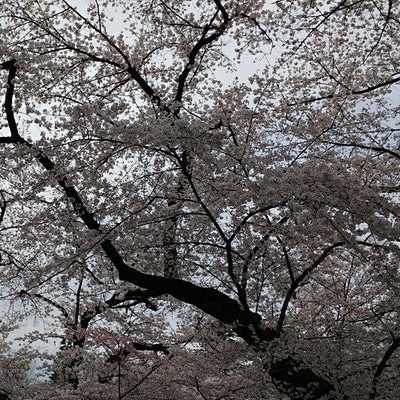
“Image, Music, Text” is the name of the famous English-language essay anthology written by Roland Barthes and selected and translated by Stephen Heath in 1977. In these pieces, Barthes asserts the importance of moving from author to reader and work to text via a series of reflections on and semiological investigations of film stills, musical and theatrical performances, photographs and written texts. Taking example from Barthes’s intermedial practice and critical essays contributing to the theoretical framework of intermediality, this workshop will explore a diverse range of relationships between images, music and texts within and beyond the scope of Barthesian analyses.
Schedule
9.00 – 9.05: Welcome and Introduction, Fabien Arribert-Narce (University of Edinburgh)
9.05 – 9.35: Alex Watson (Meiji University)
‘Intermedial Post-Romanticism: W. G. Sebald’s Ruins of Empire in Austerlitz (2001)’
9.35 – 10.05: Alexandra Smith (University of Edinburgh)
‘The Role of Music in Lev Tolstoy’s novella Childhood’
10.05 – 10.20: Coffee break
10.20 – 10.50: Rumiko Oyama (Meiji University)
‘On the Relations between Image and Writing: How writing can affect visual semiosis in multimodal texts’
10.50 – 11.20: Matthis Hervieux (University of Edinburgh)
‘Intermedial Aspects of Roland Barthes’s Encounter with Bunraku in L’Empire des signes’
11.25 – 11.55: Xingtong Zhou (University of Edinburgh)
‘The Affective Pleasure in Photobiography: Gazes and Mental Images in Roland Barthes and Eileen Chang’
11.55 – 12.00: Concluding remarks, Marion Schmid (University of Edinburgh)
DELC Research Seminar Series: Intermediality
Speakers – Dr Emanuela Patti (Italian, DELC, University of Edinburgh) and Dr Inma Sánchez-García (Intermediality Studies, DELC, University of Edinburgh)
Title – Intermediality
Series Theme – Decolonising Minds and Methods
Welcome: Professor Federica G. Pedriali (Director of Research, DELC, University of Edinburgh)
Respondents: Associate Professor Gian Maria Annovi (University of Southern California) and Professor Julie Sanders (Newcastle University)
Roundtable: Yue Zheng, Surina Bao, Sirui Xu, Kristen Barrett, Rome Godwin and Yamini Char (graduate students, MSc in Intermediality Studies, DELC, University of Edinburgh)
Event Moderator: Federica G Pedriali (Italian, DELC, University of Edinburgh)
How can intermediality help us reconsider the borders of specific media forms such as film and literature? How can intermedia processes, such as fusion and expansion of media, become ideological tools and enact discourses of decolonisation? While traditional methods and approaches have focused on the ‘purity’ of form, intermediality foregrounds questions of hybridity by facilitating cross-media and cross-disciplinary exchanges. In this double talk, we will address these questions examining how two Shakespearean tragedies – Othello and Romeo and Juliet – have been appropriated and transposed across media, languages, and cultures by two modern film directors: Pier Paolo Pasolini and Jiří Weiss. 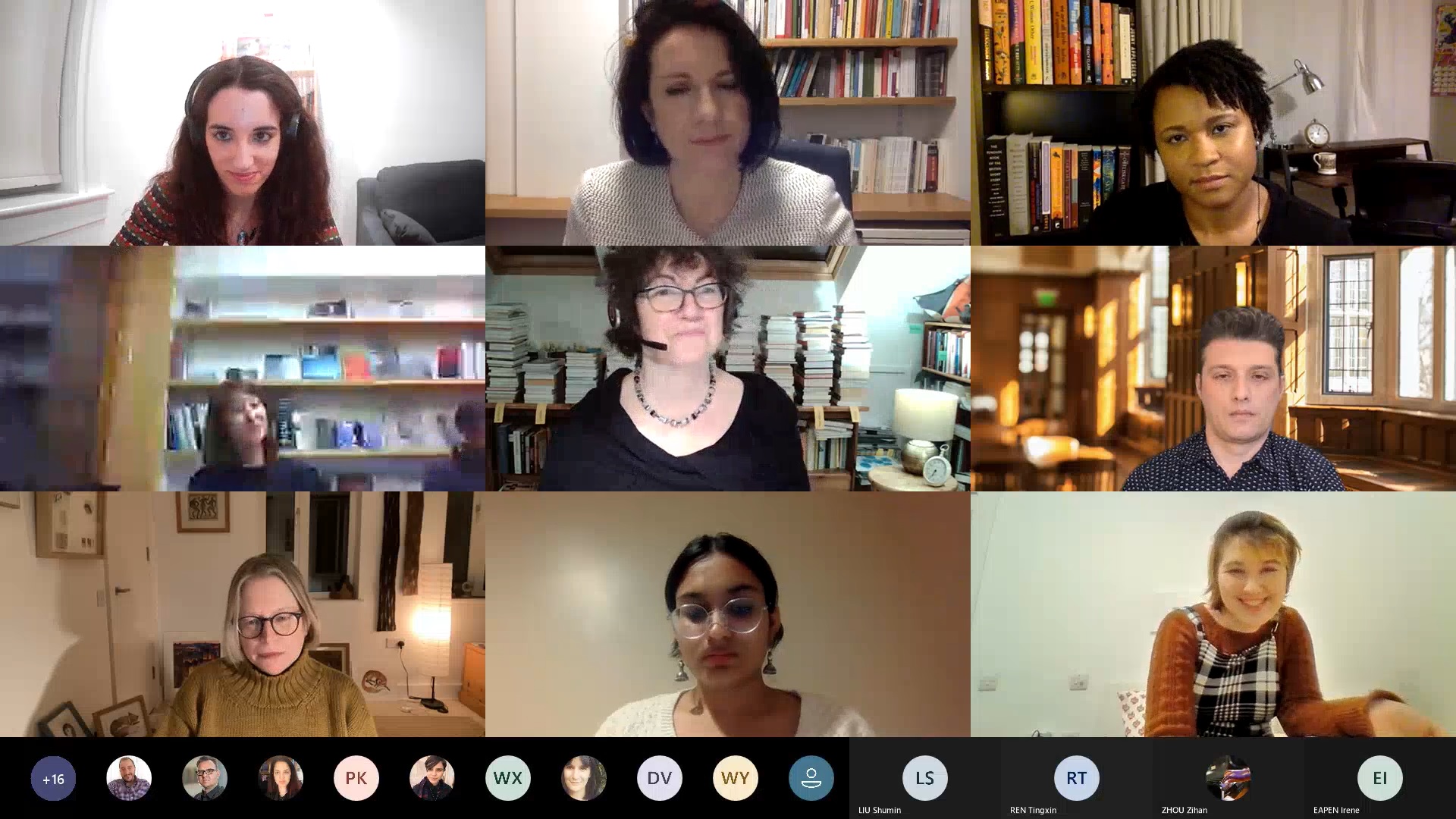 Emanuela Patti will look at “Che cosa sono le nuvole?” (1968), a short film adaptation of Shakespeare’s Othello to discuss Pasolini’s use of intermediality as a decolonisation strategy. In turn, Inma Sánchez-García will explore Jiří Weiss’ “Romeo, Juliet, and Darkness” (1960), a Czechoslovakian adaptation of Romeo and Juliet that was internationally acclaimed upon its release but is now largely forgotten, arguing that the international dimension of Shakespeare on screen still needs sustained attention. By focusing on two non-Anglophone film adaptations of Shakespeare’s plays, this talk will address not only the vitality of intermediality as a method of research, but also how intermedia strategies can be employed as deconstructing tools for political and ideological purposes.
Emanuela Patti will look at “Che cosa sono le nuvole?” (1968), a short film adaptation of Shakespeare’s Othello to discuss Pasolini’s use of intermediality as a decolonisation strategy. In turn, Inma Sánchez-García will explore Jiří Weiss’ “Romeo, Juliet, and Darkness” (1960), a Czechoslovakian adaptation of Romeo and Juliet that was internationally acclaimed upon its release but is now largely forgotten, arguing that the international dimension of Shakespeare on screen still needs sustained attention. By focusing on two non-Anglophone film adaptations of Shakespeare’s plays, this talk will address not only the vitality of intermediality as a method of research, but also how intermedia strategies can be employed as deconstructing tools for political and ideological purposes.
Inaugural MSc Intermediality Guest Lecture: Gulliver’s Travels in the World of Advertising, by Dr Ruth Menzies, Senior Lecturer in English at Aix-Marseille Université (France).
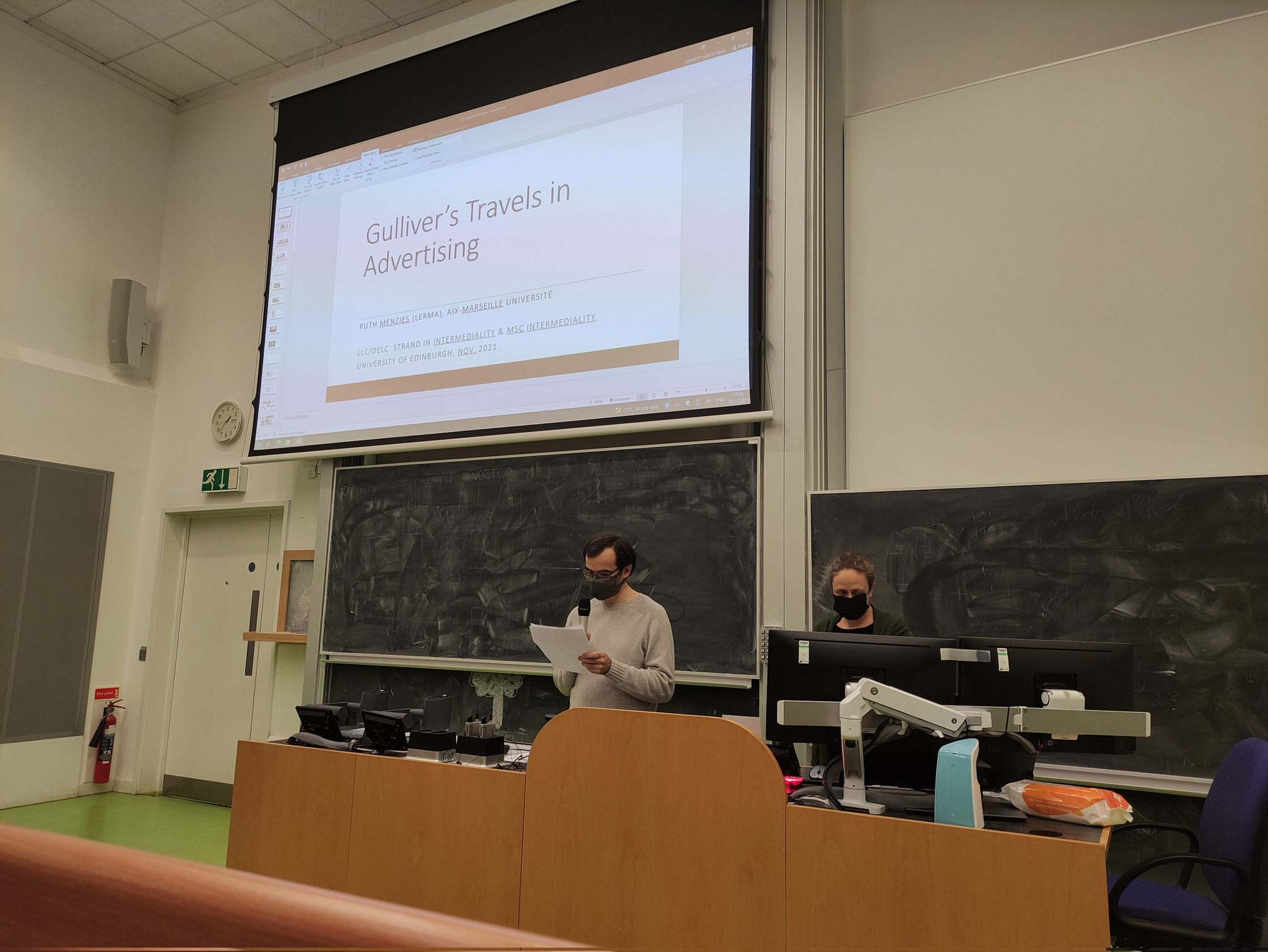
Dr Fabien Arribert-Narce introducing Dr Ruth Menzies, our first guest speaker.
When: Friday 5th November, from 17:10 to 18:00 Where: Appleton Tower, Lecture Theatre 2. EH8 9LE. The University of Edinburgh. Edinburgh, UK. (see map below)
GULLIVER’S TRAVELS IN THE WORLD OF ADVERTISING
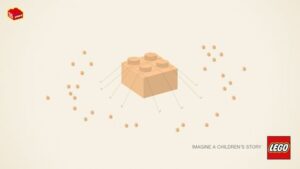 In one of literary history’s more ironic twists, Lemuel Gulliver, a notably unrealistic character whose function in Gulliver’s Travels is that of satiric puppet rather than three-dimensional individual, has entered the collective consciousness and attained mythical status. His longevity extends well beyond the confines of Jonathan Swift’s text, his fame exceeding that of his creator. Writers have regularly appropriated Swift’s mendacious surgeon, whether alluding briefly to him in passing or extensively reworking his travels. More prosaically, over the past decades the name Gulliver has come to adorn travel agencies, business centres, used-car companies and The Economist’s blog about business travel. This paper studies modes of representation of Lemuel Gulliver in advertising campaigns, focussing on the ways in which advertisers select and edit iconic moments from Swift’s text to promote products whose nature and purpose are generally far removed from his universe and ideas. Not unlike Gulliver’s Travels, these advertisements frequently contain multiple layers of often ironic meaning, whose perception and analysis inevitably vary according to the viewer’s knowledge both of the source text and of its modern avatars.
In one of literary history’s more ironic twists, Lemuel Gulliver, a notably unrealistic character whose function in Gulliver’s Travels is that of satiric puppet rather than three-dimensional individual, has entered the collective consciousness and attained mythical status. His longevity extends well beyond the confines of Jonathan Swift’s text, his fame exceeding that of his creator. Writers have regularly appropriated Swift’s mendacious surgeon, whether alluding briefly to him in passing or extensively reworking his travels. More prosaically, over the past decades the name Gulliver has come to adorn travel agencies, business centres, used-car companies and The Economist’s blog about business travel. This paper studies modes of representation of Lemuel Gulliver in advertising campaigns, focussing on the ways in which advertisers select and edit iconic moments from Swift’s text to promote products whose nature and purpose are generally far removed from his universe and ideas. Not unlike Gulliver’s Travels, these advertisements frequently contain multiple layers of often ironic meaning, whose perception and analysis inevitably vary according to the viewer’s knowledge both of the source text and of its modern avatars.


